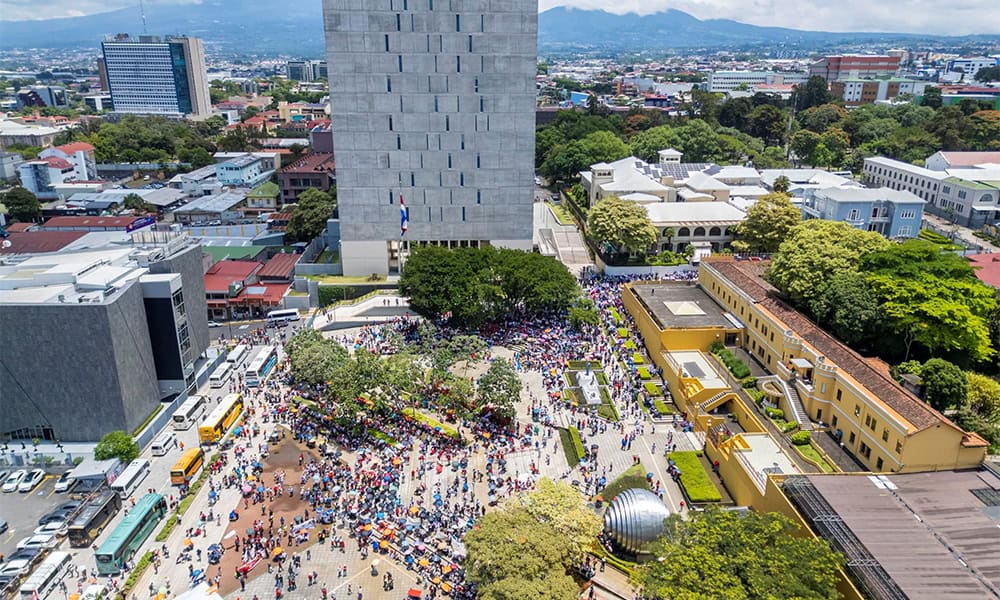Today in San José, unions, teachers, political parties, civilians, and students marched to defend the public education budget and demand an increase for 2025. The mobilization began at 9 a.m. from the University of Costa Rica (UCR) in San Pedro and ended at the Legislative Assembly.
The march followed failed negotiations between university rectors and government representatives. The government stated that there is not enough money to give universities the increase they are demanding.
The 2024 budget for universities, known as FEES, was ₡576,087 million, and the universities requested an increase of 4.06% to reach ₡599,476 million in 2025. However, the government was only willing to offer a 1% increase, about ₡5,761 million more compared to 2024, which was rejected by the higher education institutions in the last session, last Friday, August 16.
Following this failed negotation, the government indicated that it would send the FEES budget to the Legislative Assembly without any increase, leaving it in the hands of the deputies to decide the final amount for the financing of public universities.
Nogui Acosta, Minister of Finance, pointed out that there is a budgetary limit determined by the capacity to collect taxes and the capacity for indebtedness. Minister Acosta mentioned that to grant 8% for education, around 19 institutions would have to be closed to meet this constitutional commitment.
According to the president of the National Council of Rectors (Conare), Gustavo Gutiérrez, the government’s proposed 1% increase to the 2025 Special Fund for Higher Education (FEES) would put the operation of state universities on hold for next year.
Francisco González, rector of the National University (UNA), pointed out that the cuts resulted in a decrease of ₡10.5 billion in 2020 and another ₡5.5 billion in 2021. This has forced them to make cuts in several areas, including salaries.
The universities argue that the reduced budget would imply cuts in fundamental areas such as social action, research, student quotas, and scholarships. Critics point out that these institutions have disproportionate salaries and unnecessary expenses that consume a large percentage of the budget.
Now, Congress must urgently discuss the proposal and determine the funding for universities, a decision that will significantly impact higher education in the country.






